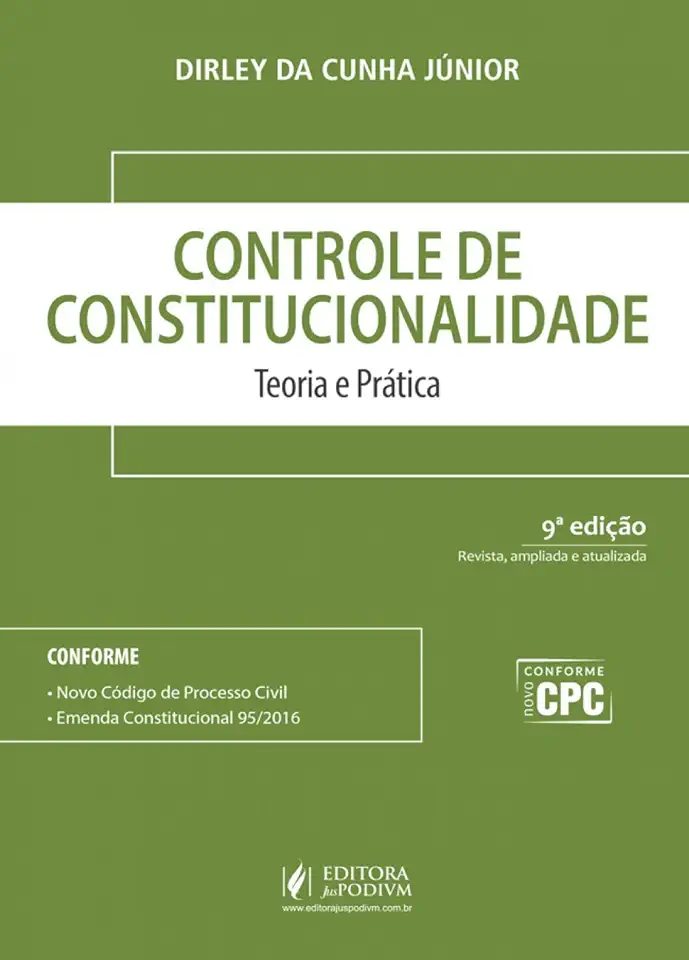
Constitutional Control - Theory and Practice - Dirley da Cunha Júnior
Constitutional Control: Theory and Practice by Dirley da Cunha Júnior
A Comprehensive Guide to Constitutional Control
Constitutional control is a fundamental aspect of modern governance, ensuring that the actions of government bodies align with the principles and provisions of the constitution. In his book, "Constitutional Control - Theory and Practice," Dirley da Cunha Júnior provides a comprehensive exploration of this critical concept, offering a deep understanding of its theoretical foundations and practical applications.
Theoretical Framework of Constitutional Control
The book begins by establishing the theoretical framework of constitutional control, examining its historical evolution and various approaches to its implementation. Cunha Júnior discusses the different models of constitutional control, including judicial review, legislative oversight, and popular participation, highlighting their strengths and limitations. He also explores the relationship between constitutional control and other branches of law, such as administrative law and international law, demonstrating the interconnectedness of legal systems.
Comparative Analysis of Constitutional Control Systems
Cunha Júnior then delves into a comparative analysis of constitutional control systems from around the world. He examines the unique features and challenges of constitutional control in different countries, including the United States, Brazil, Germany, and India. By drawing comparisons between these systems, the book provides valuable insights into the factors that influence the effectiveness of constitutional control and the lessons that can be learned from different approaches.
Practical Applications of Constitutional Control
Moving beyond theory, the book explores the practical applications of constitutional control in various areas of governance. Cunha Júnior discusses the role of constitutional control in safeguarding individual rights and freedoms, ensuring the separation of powers, promoting transparency and accountability, and fostering democratic governance. He also examines the challenges and opportunities presented by new technologies and the increasing globalization of legal systems, emphasizing the need for innovative approaches to constitutional control.
Case Studies and Real-World Examples
To illustrate the concepts and principles discussed throughout the book, Cunha Júnior presents a wealth of case studies and real-world examples. These examples draw from a diverse range of jurisdictions, showcasing the practical application of constitutional control in addressing complex legal and political issues. By examining these cases, readers gain a deeper understanding of the complexities and nuances of constitutional control in action.
Conclusion: The Significance of Constitutional Control
In conclusion, "Constitutional Control - Theory and Practice" by Dirley da Cunha Júnior is a comprehensive and thought-provoking exploration of this essential aspect of modern governance. Through its rigorous analysis, comparative approach, and practical examples, the book provides a valuable resource for scholars, practitioners, and anyone interested in understanding the intricacies of constitutional control. By highlighting the importance of constitutional control in upholding the rule of law, protecting individual rights, and ensuring democratic governance, the book makes a compelling case for its significance in shaping the future of legal systems worldwide.
Enjoyed the summary? Discover all the details and take your reading to the next level — [click here to view the book on Amazon!]